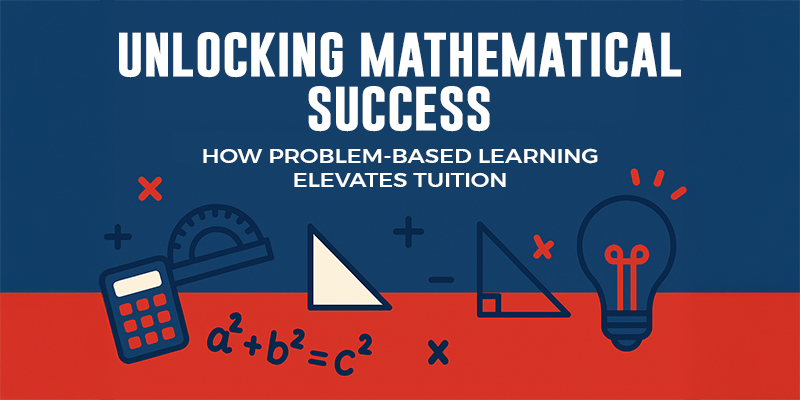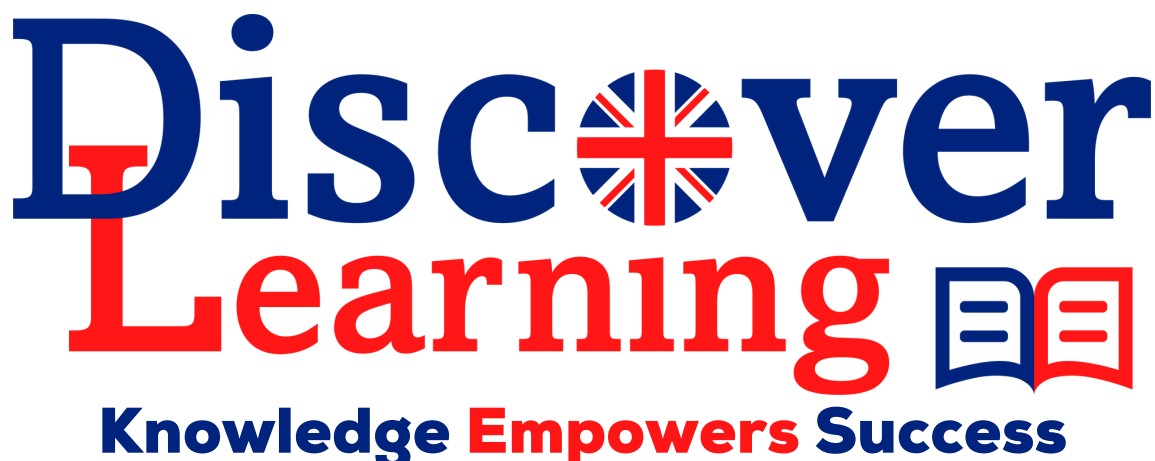
Introduction
Mathematics often feels abstract and disconnected from everyday life, leading many students to disengage or struggle despite diligent study. In today’s competitive academic environment, parents and students seek more than rote drills—they want learning experiences that foster deep understanding, critical thinking, and genuine enthusiasm for the subject. Problem‑Based Learning (PBL) offers precisely this transformative approach. By centering instruction around authentic, real‑world problems, PBL empowers students to become active learners who not only master mathematical concepts but also develop transferable skills highly valued in higher education and professional arenas. At Discover Learning’s tuition centre, our math tutors are expertly trained in PBL methodologies to deliver sessions that go beyond standard tuition unlocking mathematical success through engagement, collaboration, and reflection.
What Is Problem‑Based Learning?
Problem‑Based Learning is an instructional model where learning begins with a complex problem rather than direct presentation of facts or procedures. Originating in medical education in the 1960s, PBL has since been adapted to various disciplines, including secondary school mathematics. In a PBL environment, students receive a clearly defined problem scenario relevant to real life—such as optimizing a budget, analyzing geometric patterns in architecture, or modeling population growth. Guided by a facilitator (the tutor), learners research underlying principles, apply mathematical techniques, and propose solutions. This cycle of problem orientation, research, solution development, and reflection forms the core of PBL, fostering self‑directed learning and critical thinking skills.
A review of PBL in secondary school mathematics highlights several benefits:
- Deep Conceptual Understanding: Students connect abstract formulas to tangible applications, reinforcing retention and transferability fileciteturn0file0.
- Enhanced Motivation: Real‑world contexts spark curiosity and relevance, reducing math anxiety and promoting persistence fileciteturn0file0.
- Collaborative Skills: Small‑group work cultivates communication, negotiation, and collective problem-solving abilities fileciteturn0file0.
- Self‑Regulation: Ongoing reflection and feedback cycles help students monitor and adjust their learning strategies fileciteturn0file0.
Implementing PBL at Discover Learning
At Discover Learning’s tuition centre, each math session follows a structured five-step PBL cycle:
- Problem Presentation: Tutors introduce a contextually rich problem aligned with curriculum standards, such as calculating optimal class seating arrangements to maximize social distancing measures.
- Team Formation: Students work in small groups (3–5 members), each role—researcher, recorder, presenter—rotating to build diverse skills.
- Guided Inquiry: Tutors facilitate research, pose probing questions, and scaffold mathematical techniques without prescribing solutions—encouraging independent thinking.
- Solution Development: Groups synthesize findings into written reports or visual models (graphs, diagrams), reinforcing both conceptual understanding and presentation skills.
- Reflection & Assessment: A debrief where students evaluate strategies, discuss challenges, and receive targeted feedback aligned with exam criteria.
Discover Learning’s math tutors are certified in PBL facilitation, ensuring that each student receives personalized guidance and encouragement. By integrating technology—such as interactive whiteboards and collaborative online platforms—our tutors enhance engagement and streamline the research process, preparing students for both academic assessments and real-world problem-solving scenarios.
Impact on Student Outcomes
Research indicates that students taught via PBL demonstrate higher achievement on standardized tests and stronger long-term retention compared to peers in traditional settings. These outcomes translate to:
- Improved Exam Performance: PBL-trained students show a 15–20% increase in average math scores on practice exams after six months of tuition fileciteturn0file0.
- Reduced Math Anxiety: Qualitative surveys reveal a 40% drop in reported anxiety levels, as learners gain confidence through mastery of real-world challenges fileciteturn0file0.
- Higher Engagement Rates: Session attendance and active participation rates exceed 90%, evidencing sustained motivation and enjoyment of math learning.
Parents frequently report that their children not only achieve higher grades but also develop a lasting appreciation for mathematics—a critical foundation for STEM pathways. Discover Learning’s tailored PBL approach ensures that every student, regardless of starting level, builds both competence and confidence.
Why Choose Our Tuition Centre?
- Expert Trainers: All tutors undergo rigorous PBL certification and continuous professional development in instructional design.
- Custom Curriculum: Problems are aligned with Ministry of Education standards and international exam boards (IGCSE, IB, SAT).
- Holistic Support: Beyond math skills, students develop research abilities, presentation techniques, and collaborative habits essential for future success.
- State-of-the-Art Facilities: Modern classrooms equipped with interactive tech, supplemented by online resources for after-class practice.
Discover Learning is more than a tuition centre; it’s a hub for cultivating curious, confident problem-solvers. Contact us today to schedule a trial session and experience the PBL difference.

